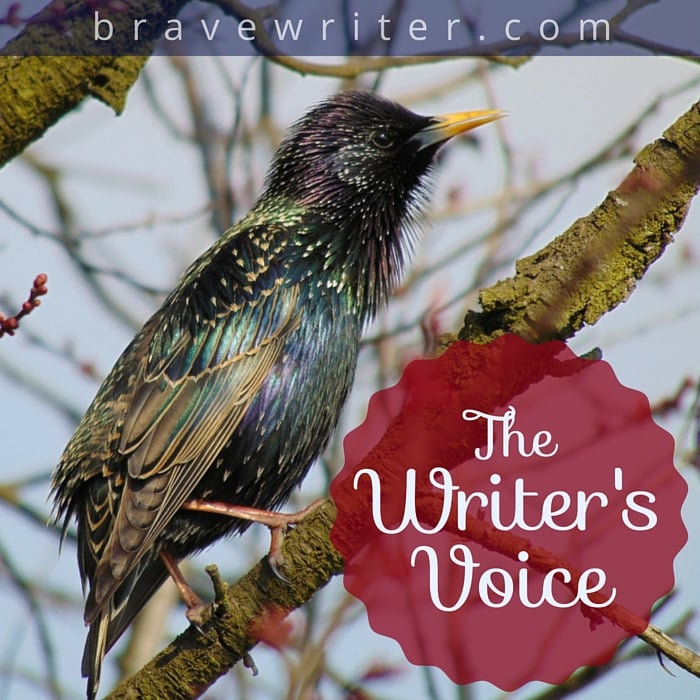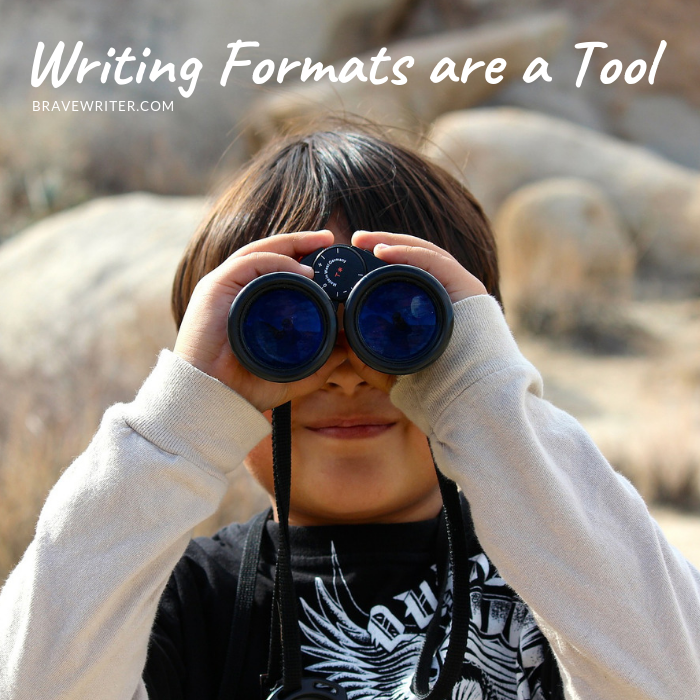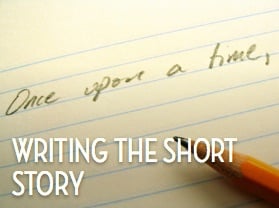
If a writing format is the “house”
then the writer’s voice is the life within.
If you start with a freewrite, you want to then think about what kind of format would best house the writing. Often, just revising the freewrite for clarity, a sense of humor, organization and powerful language is enough. You will wind up with a paper that is a few paragraphs long that retells or describes or narrates or exposes or instructs or remembers or explores.
However, as your child develops skill in writing, it’s great to introduce some of the more common formats for writing.
Some writing curricula focus on formats almost exclusively:
- Write a portrait of your mother’s face.
- Write a narrative paragraph about last year’s birthday.
- Write an expository paragraph about Custer’s last stand.
- Describe the autumn leaves in two paragraphs.
These kinds of writing tasks can be perfectly fine for kids who write naturally and comfortably. The issue is helping them first get those words onto the page and then helping them reorganize those words into a form.
So if the assignment calls for an expository paragraph about Custer’s last stand, the goal is to write about that last stand that exposes to the reader details about that moment in history.
Do you now need to consult those websites or writing books that explain what a topic sentence is, how many lines ought to fit into the paragraph, what a clincher is and so on?
They may serve as guides (though I would avoid those that treat formats like formulas or recipes that allow for no variation). As a caveat, the SAT/ACT test evaluators don’t like to be able to “see” the format in the writing. They want fluency and smooth transitions, not obvious emulation of a rigid format.
A writing teacher I admire put it this way:
“As a student grows his writing voice, he will not always use the most accurate or sophisticated structure. Yet it is essential that he develop his voice first, without those restraints, so that he knows what it is to speak genuinely and with personal confidence. It is at this point that formats may be taught.”
Do formats restrain the writer’s voice?
When they are taught, however, initially some of that spark may fade. The writer’s voice might become submerged in the restrictions and specifics of the format. That is because the student is putting his energy into mastering a new way of writing and gives less attention to what he has to say specifically.
The writer who has a sense of her own writing voice, however, will eventually move through the awkward, stiff writing phase and reincorporate the personal, individual writing style as she becomes more comfortable with the purpose and structure of the format.
What this means is that you may introduce formats for writing to kids who write fluently and naturally. As you do, don’t be surprised at a bit of regression in terms of flair and personality in the writing. As the child begins to master the format (like the expository essay), look for ways to enhance the content by writing more sophisticated transitions, by including personal experience, by upgrading word choices and so on.
Formats are the “next step” not the “first step” for your young writer.
Questions about writing formats come up frequently. Keep reading about things you can do to help strengthen your child’s writing voice before introducing formats.






















